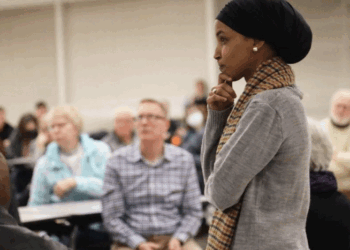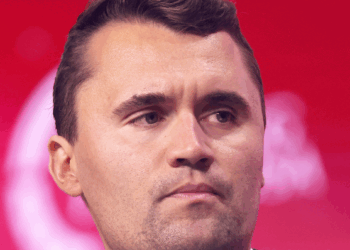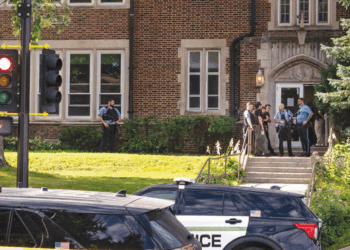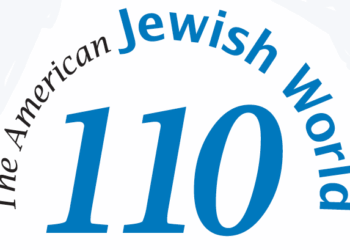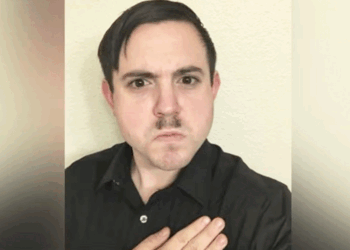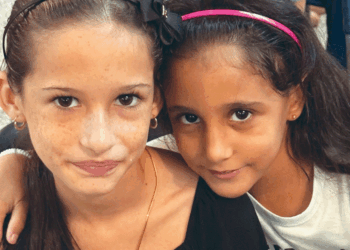As the American Jewish World was going to press this week, an e-mail arrived from the heads of the World Union for Progressive Judaism, an umbrella group for 1,200 Reform, Progressive, Liberal or Reconstructionist Jewish congregations. The missive proclaimed that the controversial conversion bill that passed a Knesset committee would not get a first reading before the Israeli parliament.
The entire alphabet soup of Jewish organizations, religious and communal — IMPJ, IRAC, URJ, CCAR, ARZA, RAC, etc. — have sounded the alarm about this proposal, which ostensibly would benefit Russian Jews in Israel, but was seen as giving undue power to the Chief Rabbinate.
“If passed, this legislation would place authority over all Jewish births, marriages and deaths — and, through them, the fundamental questions of Jewish identity — in the hands of a small group of ultra-Orthodox, or Haredi, rabbis,” Alana Newhouse, editor of Tablet Magazine, wrote in the New York Times last week. “The move has set in motion a sectarian battle that is not only dividing Israeli society but threatening to sever the vital connection between Israel and the American Jewish diaspora.”
In her op-ed, Newhouse noted: “If this bill passes, future historians will inevitably wonder why, at a critical moment in its history, Israel chose to tell 85 percent of the Jewish Diaspora that their rabbis weren’t rabbis and their religious practices were a sham, the conversions of their parents and spouses were invalid, their marriages weren’t legal under Jewish law, and their progeny were a tribe of bastards unfit to marry other Jews.
Why, they will wonder, as Iran raced to build a nuclear bomb to wipe the Jewish state off the map, did the custodians of the 2,000-year-old national dream of the Jewish people choose such a perverse definition of Jewish peoplehood, seemingly calculated to alienate supporters outside its own borders?”
Also, last week, Anat Hoffman, leader of Women of the Wall and executive director of the Israel Religious Action Center, attended a prayer service at the Kotel, the Western Wall plaza in Jerusalem’s Old City; and as she walked away, a small Torah scroll in her arms, with a group of Jewish women singing prayers, she was arrested by Jerusalem cops. (Dr. Laurie Radovsky, a St. Paul physician, was at the prayer session and, as the YouTube video shows, was walking arm-in-arm with Hoffman at one point.)
Women of the Wall, a group of faithful Jewish women — Orthodox women, by American Jewish standards — has repeatedly endured vile epithets, physical brutality and arrests as they have attempted to pray at the holiest site in the Jewish world.
So, apart from any disagreements American Jews might have with Israeli policies toward the Palestinians, the return of the “Who is a Jew?” controversy, an aspect of the state-sanctioned denigration of liberal Jewish streams within Israel, is guaranteed to further alienate American Jews from Israel.
The issue is simply bewildering for most American Jews. Let’s put it in specific terms: I married a non-Jew who converted to Judaism under Conservative auspices. Our three sons were converted to Judaism, because their mother was not Jewish. As it happened, my eldest son was converted under Jewish auspices, with a beit din (Orthodox religious judges) presiding at his mikva. I used to think that my eldest son would be welcomed without question as a Jew in Israel; however, in the eyes of the Israeli Rabbinate, the family is 80 percent goyim. And given the disdain for my editorials wafting in on occasion from the AJW’s environs in St. Louis Park, I might not be quite up to the knocker, Jewish-wise.
I wrote “bewildering,” but to a growing number of Jews in the Diaspora, the pseudo-theocratic nature of the Jewish state is seen as simply absurd and alien. Author and blogger Bernard Avishai took issue with Alana Newhouse’s op-ed in a post yesterday: “Have organized American Jews, even the hippest among them, entirely lost their ability to distinguish between an argument about political rights in a democratic state and the question of who gets to come to Camp Ramah? Will future historians not wonder how a democratic state — any democratic state — should presume to define or legally designate what a ‘Jew’ is, or a ‘Christian,’ for that matter, or award material privileges to individuals based on this legal designation, especially a state with a 20 percent (and growing) non-Jewish minority?”
Avishai questioned Newhouse’s formulation that “the problem is which rabbis have the right to make people into Jews, so that other made Jews would have the ‘right to marry’ them… Will historians not wonder about a country, any country, where Newhouse does not have the right to marry anyone-the-hell she wants, Jew, Arab, or brunette fetishist? Particularly about a country that depends not only on the goodwill of the Jewish Diaspora, but the goodwill of all the Western democracies where the right to civil marriage has become boring?”
The “Who is a Jew?” controversy flared up in the late ’90s, with the Ne’eman Commission, and has been simmering in Israel ever since. Unfortunately, most American Jews will conclude that the issue is irrelevant to their lives and their conception of themselves as the heirs of a vibrant and enduring Jewish religion and culture.
— Mordecai Specktor / editor@ajwnews.com
(American Jewish World, 7.23.10)








